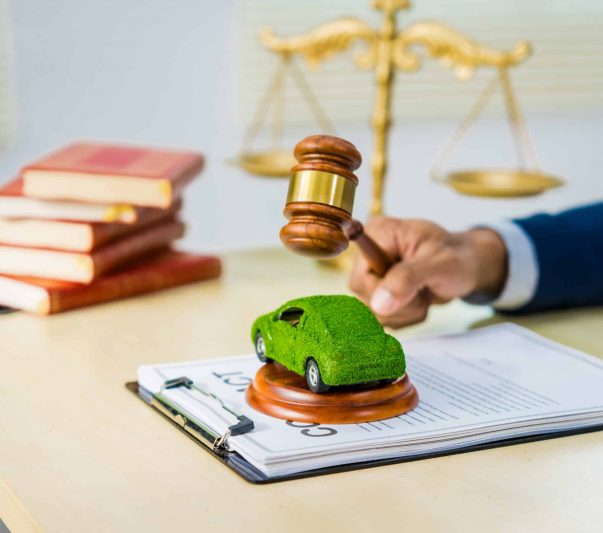The answer varies by state. In Wyoming, there is no cap on personal injury claims because the state constitution specifically forbids it (except in some lawsuits against government agencies, in which the cap is $250,000). However, your ability to recover compensation may be limited by other factors, including shared fault, the availability of evidence to prove your claims, insurance policy limits, and the defendant’s ability to pay a judgment against them.
Colorado places more limits on personal injury claims. In most situations, you are not limited in recovering economic damages, like medical bills or lost income. These damages are easy to calculate and to prove in court – you have bills for your medical care, you can find records of the time you missed at work and calculate your lost pay, etc. If you will need long-term care for severe injuries or are now permanently unable to work, you can also seek compensation for future medical expenses or lost income based on a reasonable estimate. (Your attorney will help you with this calculation.)
There are some limits on non-economic damages and a few limits on total damages in specific situations. These include:
Pain and Suffering Caps
This is considered a non-economic damage because it doesn’t have its own inherent value – in other words, no one sends you a bill for your pain and suffering. Yet it remains a loss for you, and you can only seek relief through the court system by asking for financial compensation. For this reason, your car accident lawyer will help you come up with a fair amount of compensation for your physical pain and emotional or mental anguish.
Colorado generally limits pain and suffering damages to $250,000 (with some adjustments for inflation). This amount can be raised to $500,000 (plus inflation) in situations where you can provide “clear and convincing evidence” that a more significant settlement is justified. (This is a higher burden of proof than the typical requirement for civil cases, which is a “preponderance of evidence” that the defendant was negligent.) There is an exception for pain and suffering associated with a permanent physical impairment or disability, for which there is no cap.
Medical Malpractice Caps
Pain and suffering damages are limited to $300,000 in most medical malpractice cases. The total compensation for a medical malpractice case can’t exceed $1 million dollars unless you and your attorney can demonstrate that this amount is unfair. This may be possible in extreme cases where you or a loved one have suffered severe, lifelong consequences of a healthcare provider’s negligence.
Caps in Dram Shop Law Cases
What are dram shop laws? These describe a specific situation where it is possible to pursue compensation from a third party rather than the negligent party responsible for your injuries. For example, in a car accident case, we usually seek damages from the at-fault driver and/or their auto insurance carrier. However, there are some situations where the injured person’s damages exceed the limits of both the at-fault driver’s insurance and the driver’s own financial resources. Colorado only requires $25,000 per person in bodily injury liability, so if you had $75,000 in medical bills and the at-fault driver had no significant financial resources, you might find that you were still down $50,000.
In this case, your lawyer would look for other options to help you recoup your losses. If the driver who hit you was a minor arrested for driving under the influence, one possible option might be to sue an establishment that sold or served alcohol to that minor. You would need to provide evidence that the minor was visibly intoxicated and later drove drunk, causing your accident.
In dram shop cases, Colorado limits total damages from a dram shop to $150,000 for each person injured. However, you could still collect other damages from the driver or their insurance company. In some situations, you might also be able to receive damages from your own auto insurance, depending on the type of coverage you have.
Wrongful Death
A wrongful death claim is essentially a personal injury claim filed when the injured party has died from their injuries and cannot file their own lawsuit. Colorado law allows a surviving spouse to file a wrongful death claim after the death. If there is no surviving spouse, the decedent’s heirs or a designated beneficiary can file a claim in this time frame. With no surviving spouse or children, the deceased person’s parents may file a claim.
In wrongful death cases, the same rules for pain and suffering apply. These damages are capped at $250,000 plus inflation – or $500,000 plus inflation if you and your lawyer can show justification. However, there is usually no limit for burial expenses and “net economic loss,” which includes things like the decedent’s medical bills prior to death and their family’s loss of financial support. One exception is if the deceased had no surviving spouse, minor children, or a dependent parent, in which case the total recovery is capped at $250,000 or $500,000 with justification (plus inflation).
Punitive or Exemplary Damages
Punitive damages are somewhat different from other damages. They are not awarded for any specific loss the injured party suffered but to punish (or make an example of) the negligent party. The majority of cases we see do not receive punitive damages. But in some cases, they might be awarded if we can show that the defendant’s actions were one of the following:
- Fraud
- Malice
- Willful or wanton behavior
Usually, this means we have to show evidence that the defendant’s actions were particularly reckless and that they knew there was a high likelihood they might hurt someone. This is often more difficult than demonstrating mere negligence, which is why punitive damages aren’t always available.
When they are, they are capped at the same amount as the plaintiff’s actual damages. One exception is in a wrongful death that meets specific requirements, at which point the court may increase punitive damages to three times actual damages.
Why Are Punitive Damages Capped?
Punitive damages are intended to serve as a punishment for the defendant, but punishments aren’t meant to be excessive. The caps are also in place to discourage defendants from seeking exorbitant amounts of compensation and make it easier to predict what a settlement might look like.
It’s also helpful to keep in mind that punitive damages beyond the current caps would probably exceed the limits of insurance and personal resources for many defendants anyway.
How Do You Calculate Damages in a Personal Injury Claim?
Your personal injury attorney will review all possible damages with you and help you estimate what your claim should be worth. It may be useful to have the following documents handy:
- All medical bills and any costs associated with medical care. Don’t forget things like mobility aids, prescription copays, physical therapy equipment for home use, anything you had to pay out-of-pocket, and travel costs if you had to drive a considerable way to see a specialist.
- Anything showing the time or income you lost at work due to your injuries. Usually, pay stubs are helpful because they show either reduced income or used PTO. (You can still seek compensation for paid time off – you lost the opportunity to use that time elsewhere.)
- Tax returns showing previous income if you are permanently unable to work or earn as much income as before.
- Documentation of any permanent disability or disfigurement you suffered. For example, you might have a letter from your doctor stating that you’ve reached maximum medical improvement (MMI) and are unlikely to recover any further.
- In the case of wrongful death, tax returns or other records showing the decedent’s financial contributions to the family.
- Bills for burial or funeral services and the decedent’s medical care for wrongful death cases.
It’s understandable if you can’t find all of these documents. We know that injured people are often in pain, under stress, and struggling to put the pieces of their lives back together. Our staff members are happy to help you track down documents, and with your permission, we can request the necessary paperwork from doctor’s offices, hospitals, or other businesses.
How Can I Get Help with My Personal Injury Claim in Colorado or Wyoming?
Please contact the Olson Personal Injury Lawyers for a free case review at (970) 633-3673. If there’s a way to obtain compensation for your injuries, we’ll find it. We’ll also answer your questions and explain your options so you can make an informed decision on how to proceed.
Attorney Sean Olson founded the Olson Personal Injury Lawyers with the goal of helping injured people tell their stories and seek the damages they deserve. He personally meets with each client to learn about their experiences and goals and advise them on their legal options. Mr. Olson is always available to respond promptly to calls and emails from clients and works to secure the settlements needed to put their lives back on track.







